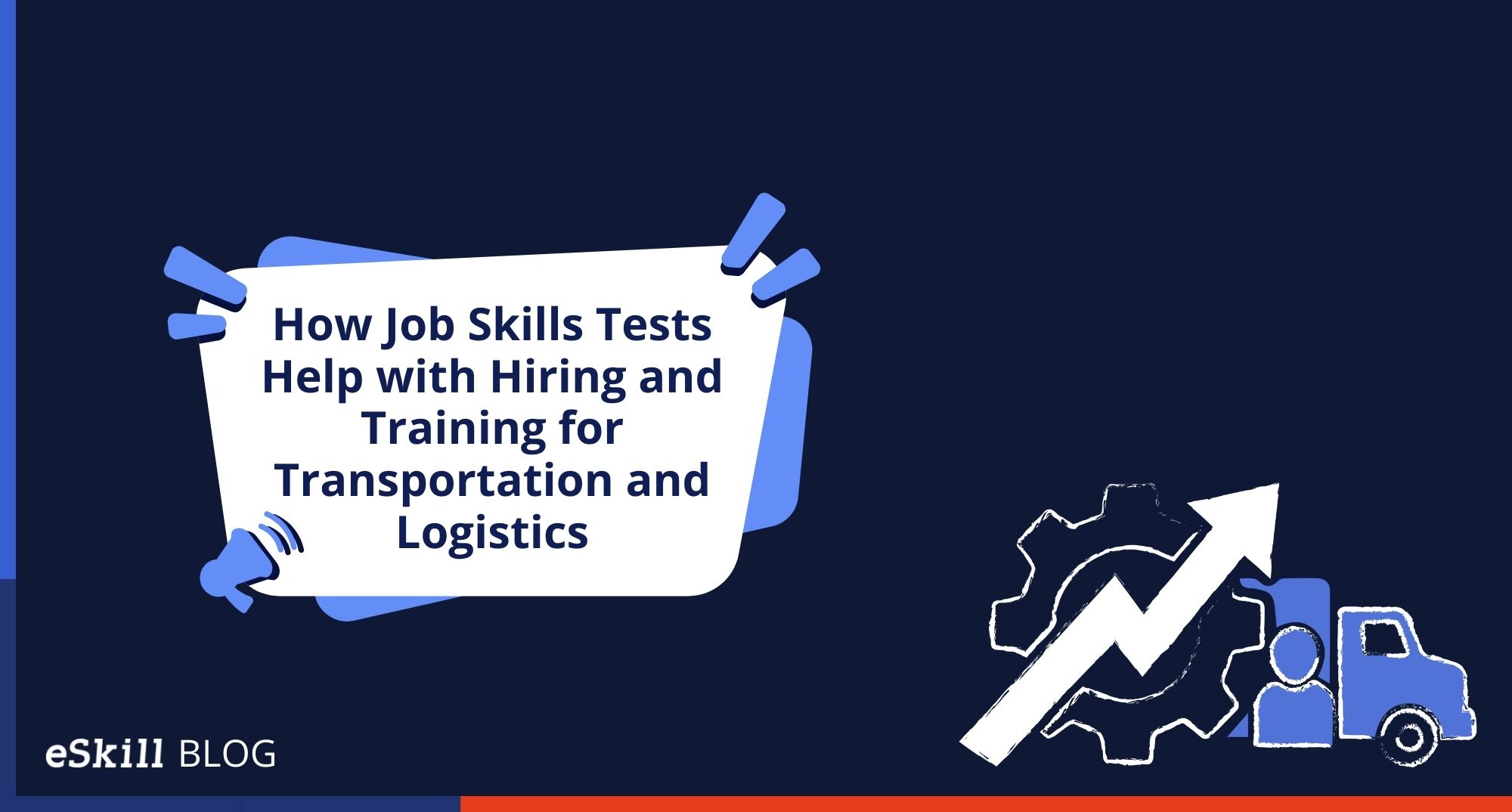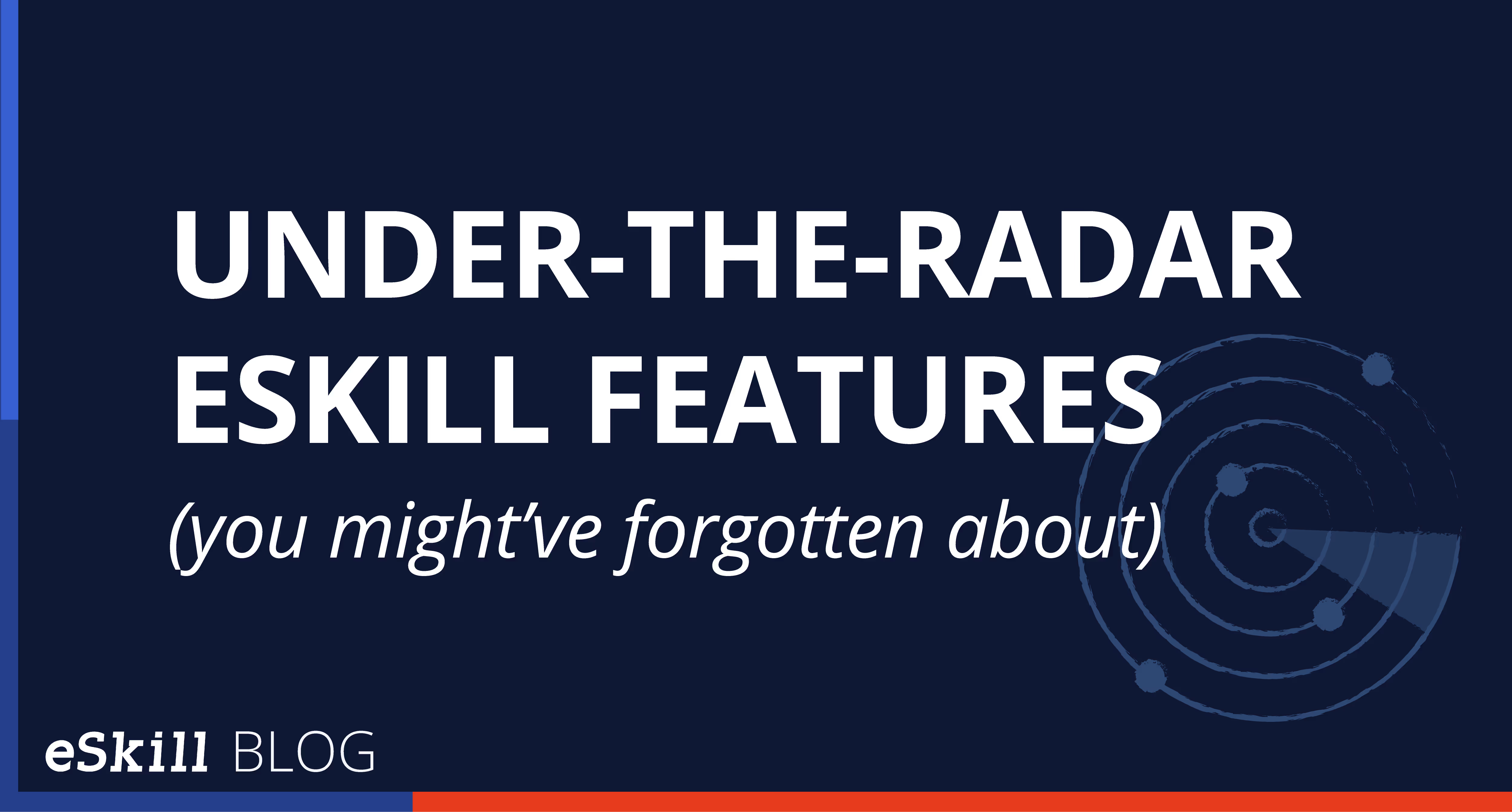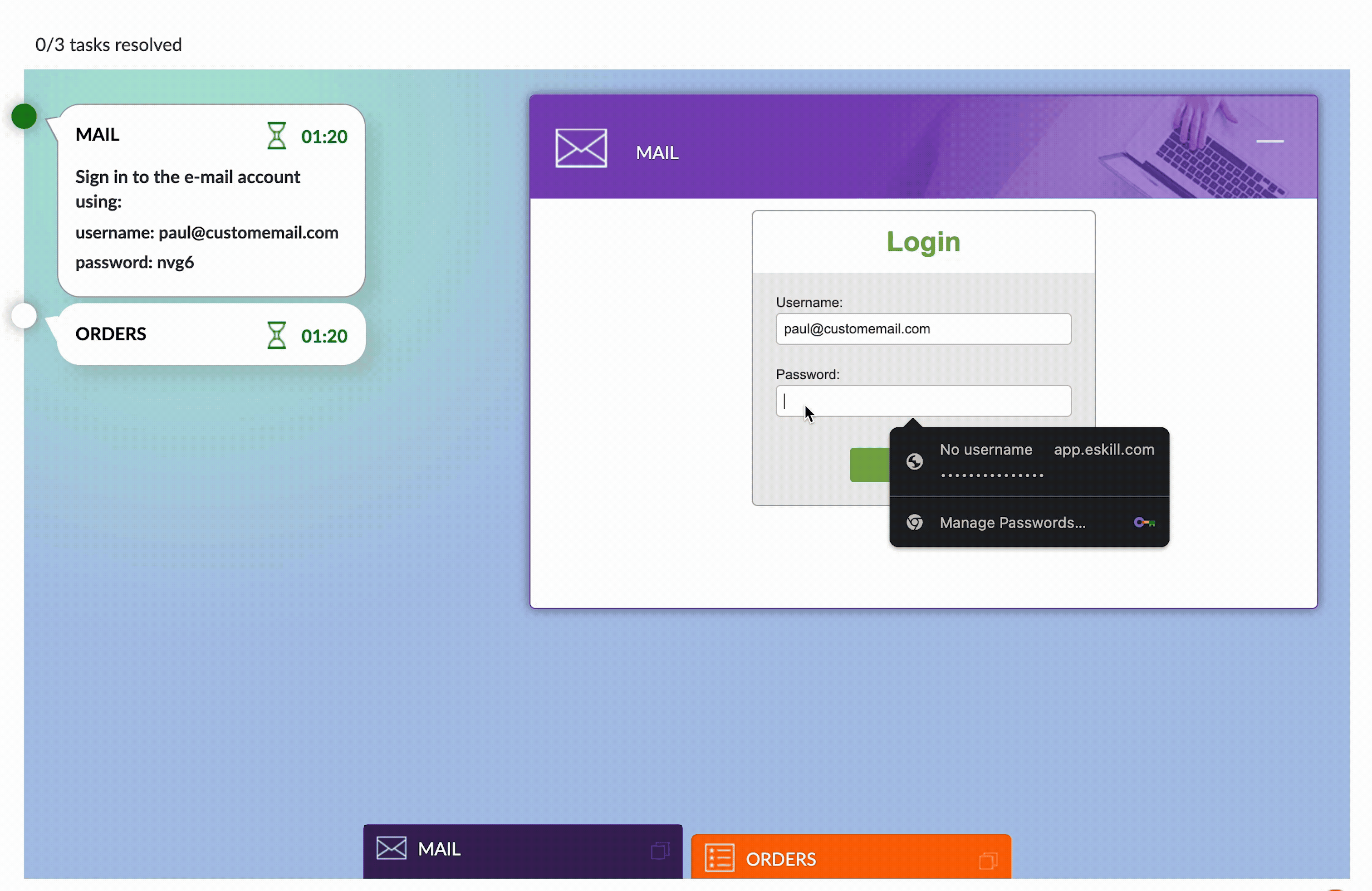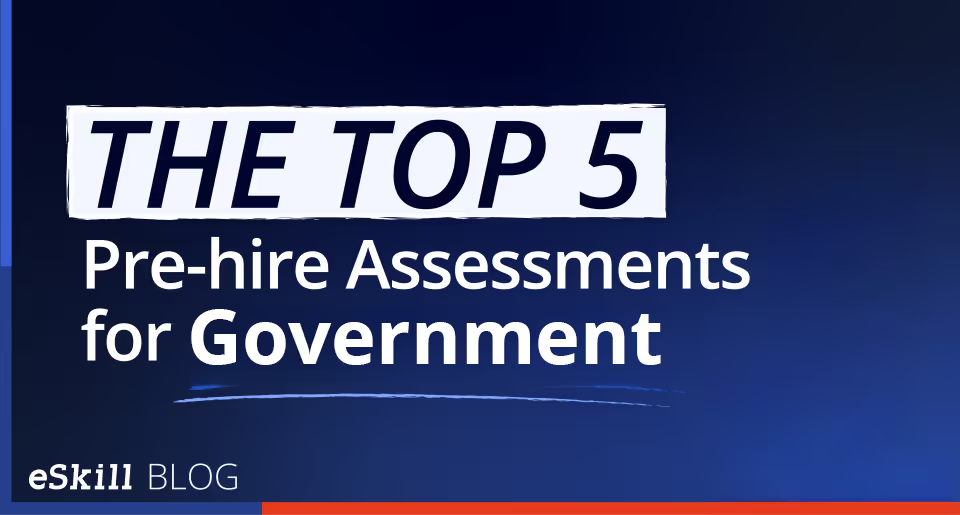The world of transportation and logistics is certainly facing a time of intense changes, many of which will continue to alter the ways that the industry functions for years to come. From the lasting impact of the COVID-19 pandemic to the looming rise of driverless trucks, companies must focus on preparing for the future by building flexibility and maneuverability into their business models in order to stay competitive.
Despite all of this, hiring in the industry remains high. In November 2020, for instance, logistics hiring exploded, adding 218,000 warehouse jobs alone. Transportation and logistics jobs are continuing to grow, especially as businesses and individuals begin to order more and more online, forcing the supply chain to grow and adapt with these rising orders.
When it comes to hiring and training transportation and logistics employees, Skills Tests from eSkill provide an exceptional value, from hiring an employee through their continued professional development. With eSkill’s Talent Assessment PlatformTM, you can increase the efficiency of your company’s hiring processes while tailoring your training programs to each employee, making your entire structure much more effective. These tests can integrate seamlessly with your company’s human resources (HR) software, making it easy to incorporate testing into your company’s routine.
Using Skills Assessment Tests to Hire the Right Candidate
With companies continuing to ramp up their transportation and logistics hiring, it becomes increasingly important to make sure that they hire workers with the skills and the personality to fit the position. This can put a lot of pressure on HR departments, which have to balance the need to quickly fill a position with performing their due diligence in vetting candidates.
This is where skills testing can be especially valuable. With eSkill’s testing platform, hiring managers have a wealth of options for testing prospective employees. With a library of more than 800 tests, you can create custom tests by picking and choosing content from multiple tests or by supplying your own material.
For example, you could customize the Delivery Driver test so you can evaluate a candidate’s ability to read maps, use GPS navigation and organize and load products in trucks, and the Logistics Manager test to assess candidates’ experience overseeing trucks, forklifts, and shipping equipment and managing shipping schedules and inventories.
These tests generate reports that provide quantitative data on each candidate, making it easy to compare them without having to sift through hundreds of resumes. By eliminating the candidates who lack the required skills for the position, you can limit the number of resumes that need to be read, as well as lowering the number of phone and in-person interviews you will need to conduct. All of this can shorten your time-to-hire by up to 60%.
One additional benefit to skills assessment testing is that you will also eliminate unconscious bias, which can cause you to overlook a perfectly qualified candidate without even realizing it. With an increasing focus on equality within the workplace, any efforts to remove bias should be seen as a positive step forward.
Skills Testing and Professional Development
Training your employees is about more than just filling in knowledge gaps — it affects your bottom line. According to The Huffington Post, companies that devote resources to comprehensive training programs enjoy a 24% higher profit margin than the ones that put less priority on employee development. For both the welfare of your company and your employees, establishing a strong training program is vital.
The same skills assessment tests that you used in the hiring process can also serve as a starting point for your employees. Think of that first test as a baseline reading. The report generated for each employee points to their strengths and weaknesses, as well as any glaring skills or knowledge gaps. This can help you to determine an initial direction for training that can be specifically suited to each individual.
However, skills tests are not just a good starting point — they are also an excellent way to measure training effectiveness. After each employee completes a training course, they can take the skills test again, and you can compare the results to their baseline measurement to see if they have improved. If they have, this new snapshot can suggest the direction of further training.
However, lack of employee improvement is no reason to panic. It might suggest that the employee simply needs more time to develop the target skill. This might have gone unnoticed without further testing. It can also indicate that your training program may need adjustment, especially if multiple employees show a similar lack of progress. In this way, these tests are just as much about evaluating your company’s employee development as they are about the employees themselves.
With skills testing through eSkill, you can track employee performance from hiring through development, making sure that you are getting a sufficient return on your investment. For their part, employees appreciate feeling as though the company is invested in their growth, making it even more likely that they will remain with the company for the long haul.
Interested in Using Skills Tests to Help Hire and Train Your Employees?
Learn how eSkill can help you ensure you hire the best person for each open position. Request a demo today.
Talk to sales






